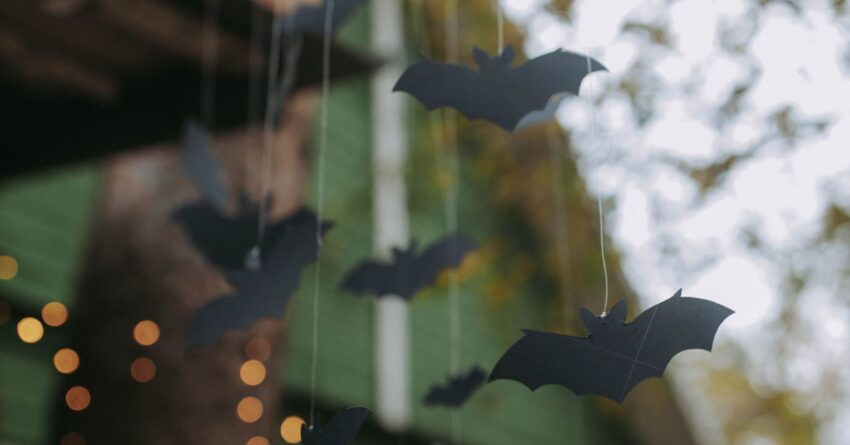It’s a wicked experience. You wake with your heart racing at two or three in the morning. Nauseous. You might wonder if you are dying or having a heart attack. Usually, less than an hour later, the episode has passed. Falling back to sleep might be rough though.
For individuals I’ve treated for panic attacks, the night panic some experience is usually the most mysterious. Many people don’t know there is a name for the phenomenon, or they might assume that they must have had a forgotten nightmare (which could be the case). It’s stressful.
Nocturnal Panic Attacks
Night-time panic attacks, also called nocturnal panic attacks, are common, particularly in people living with anxiety disorders. It’s estimated that 44 to 71 percent of people with a diagnosis of panic disorder will have at least a nocturnal panic attack (Craske and Tsao, 2005), with a fraction of those people only experiencing panic symptoms at night. While the physical symptoms of nocturnal panic attacks are similar to daytime ones, it can be difficult to identify a trigger. Unlike daytime panic attacks, which often follow a storm of stressful events or anxious thoughts, nocturnal panic attacks more often wake someone in the night, sometimes with no obvious prompt at all.
Research into nocturnal panic attacks has found that these are associated with several complications including thoughts of suicide (Smith et al., 2020). In those diagnosed with panic disorder, a coexistence of night and day panic attacks has correlated with a more severe presentation while night attacks alone were more associated with night terrors (Nakamura et al., 2013). Overall, less is known about this presentation than panic disorder as a whole.
Tricky to Treat
Psychotherapy, including cognitive behavioral therapy and acceptance commitment therapy, are the treatments of choice for panic disorder. Still, treating night panic attacks can be more difficult. In cognitive behavioral therapy a central premise is that our thoughts influence how we feel, with nocturnal panic attacks a person is unlikely to be able to identify a thought that occurred before the experience.
That said, psychotherapy can still be of benefit. Research has shown that an overall fear of loss of vigilance is associated with nocturnal panic attacks (Smith and Capron, 2021) making it a potential target for cognitive interventions. In addition, behavioral changes in sleep hygiene may improve symptoms in some. Research has shown cognitive behavioral therapy to be effective in decreasing panic symptoms in individuals with nocturnal panic attacks with gains in one sample of patients up to a year following therapy (Manchard et al., 2013).
If you are experiencing nocturnal panic attacks, here are some steps you can take to enhance your coping.
1. Tap into Something Calm Before Bed
What we feel before sleep often affects how we feel during sleep. As you are drifting to sleep or in the hours prior try to access something relaxing like soothing music or time with a pet. Avoid high-emotion activities at this time. For example, journaling can be fantastic in improving overall mental health, but if you notice yourself journaling on activating topics, schedule your time to journal several hours before bed.
2. Set Up a Plan Ahead of Time
If you are finding that you are having night panic attacks often, or are already having anxiety while falling to sleep, prepare ahead of time. Place calming objects on your nightstand. This might be a mug of peppermint tea, a stuffed animal, or a card with positive mantras to help you in this time. This can help you regain some sense of control.
3. Look for Triggers
Do you notice any patterns of when you are having panic attacks? Is this happening more during the week or on the weekend? Is alcohol use a trigger? Perhaps you notice that these coincide with nightmares. This information can help you in creating a plan to address your overall stress and anxiety.
4. Schedule a Doctor’s Appointment
If you are struggling with panic symptoms at night, a visit to your primary care physician may be worthwhile to rule out potential physical causes. Health challenges including sleep apnea and sleep-related seizures can have similar features to panic attacks in some people. If your symptoms are rooted in stress and anxiety, your physician can also help guide you to treatment.
5. Create a Wind-Down Routine
Just like a helicopter needs time to land, we need time to de-stress before sleep. The more wound up we are in the evening, often the more time we need. Creating a routine involving gradually more relaxing activities through the later hours may help you get into a mind state for sleep.
6. Avoid Alcohol Before Bed
While most people are aware that caffeine can interfere with sleep, many find alcohol relaxing. Yet, alcohol can alter sleep architecture (Arnedt et al., 2011). While I was not able to find research specifically exploring the effects of alcohol on nocturnal panic attacks, alcohol has been identified as a trigger for a variety of sleep-related problems.
In Conclusion
Night panic attacks can be highly distressing. Still, there is help. Psychotherapy, a decrease in stress, and sometimes medical interventions may provide relief.
